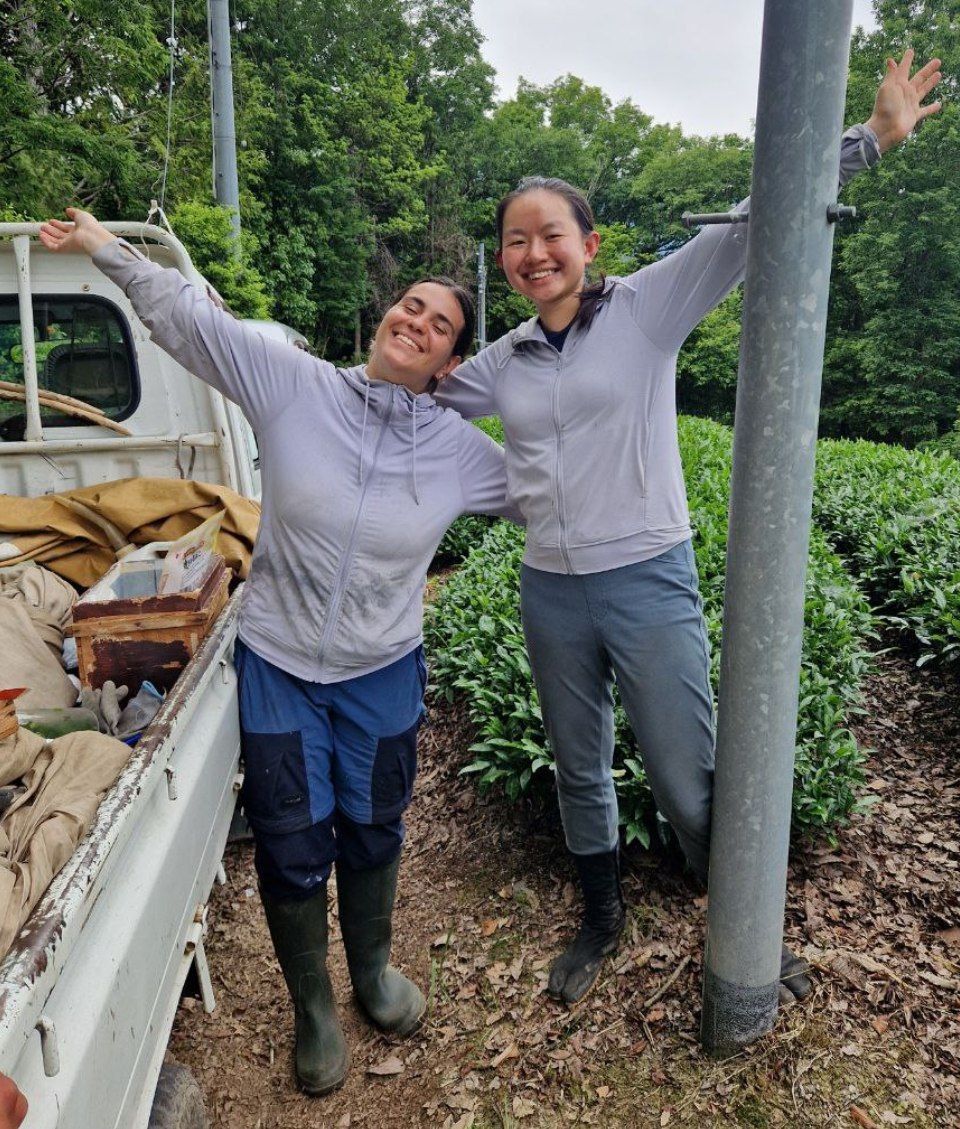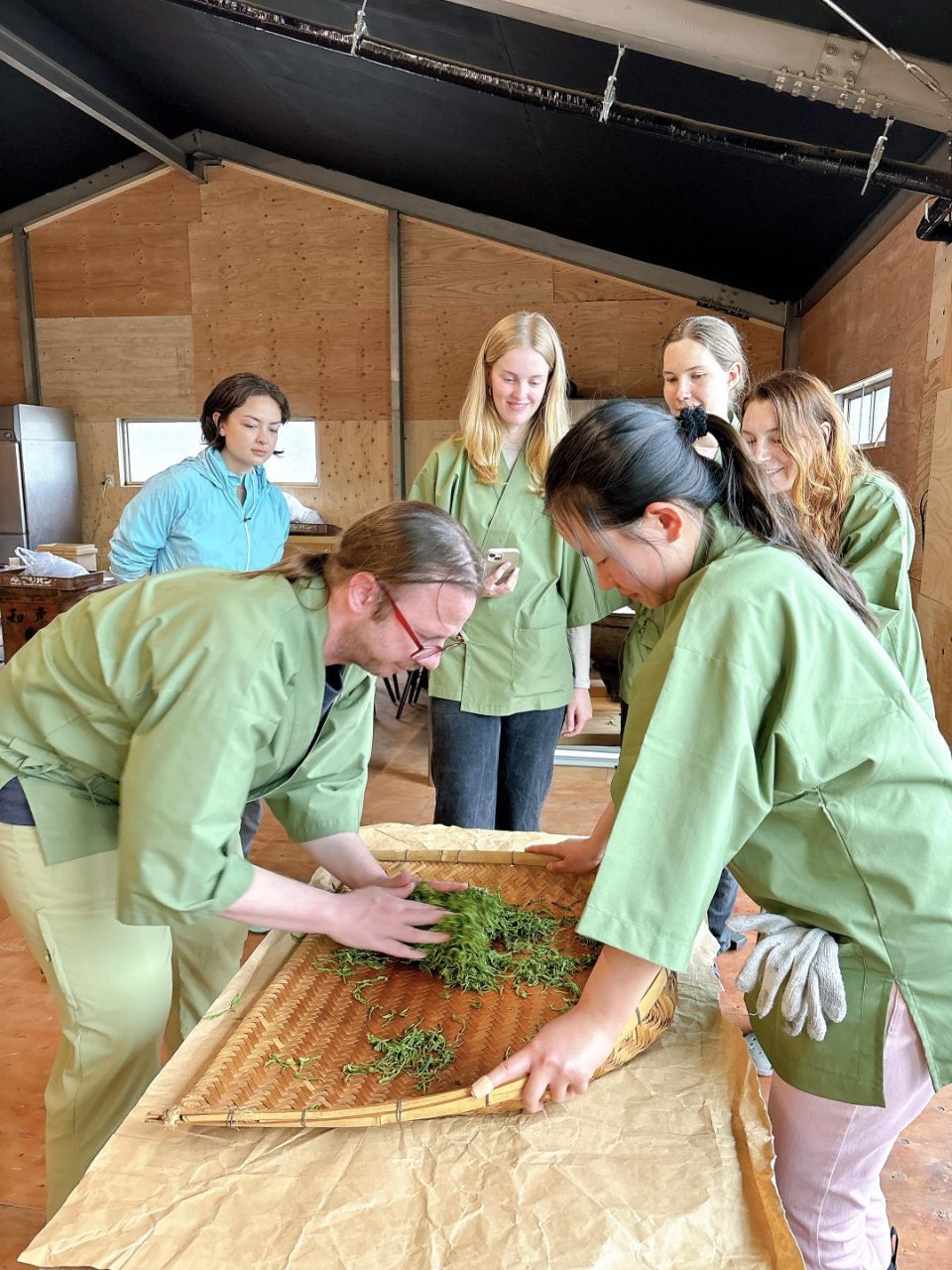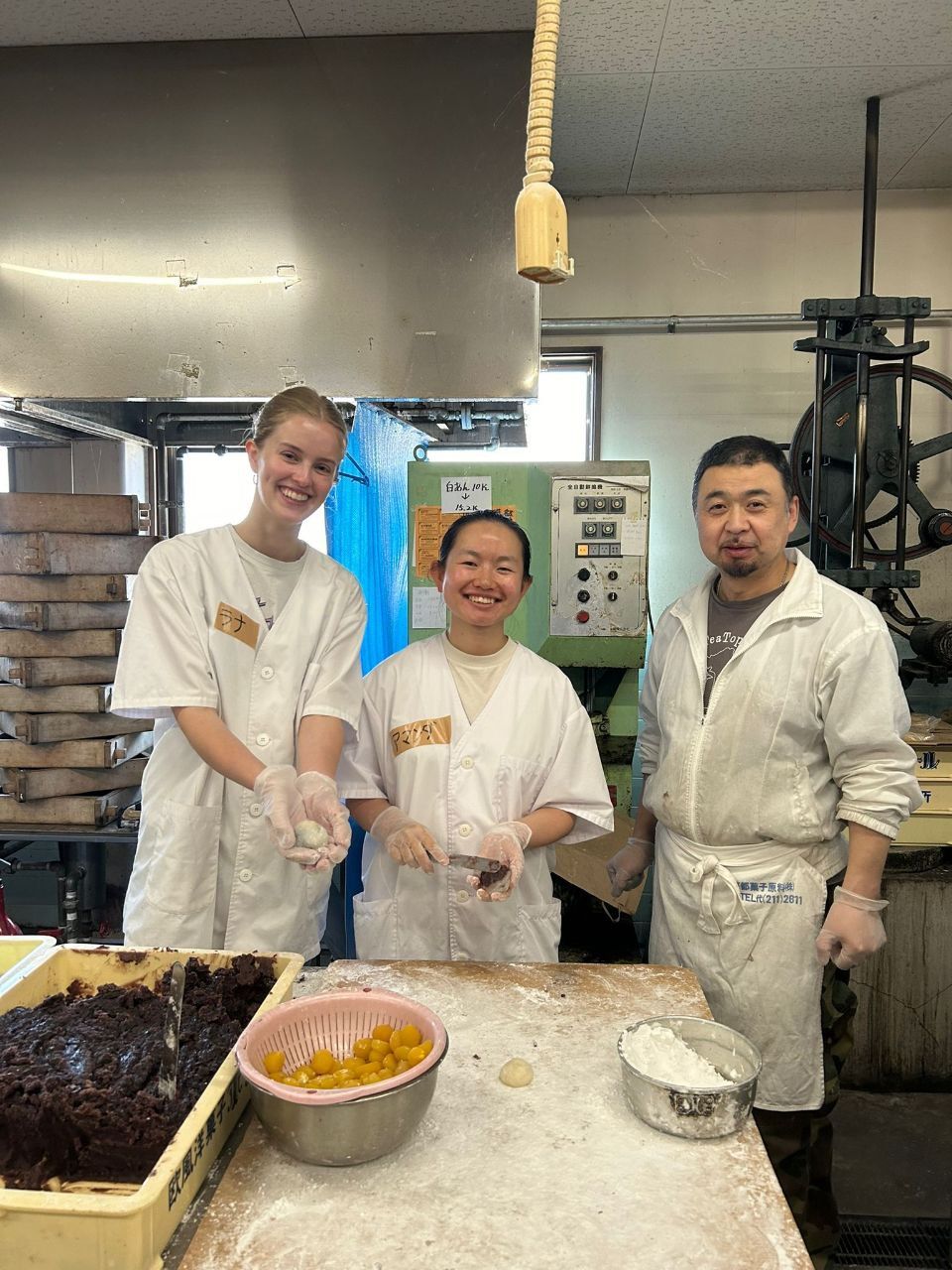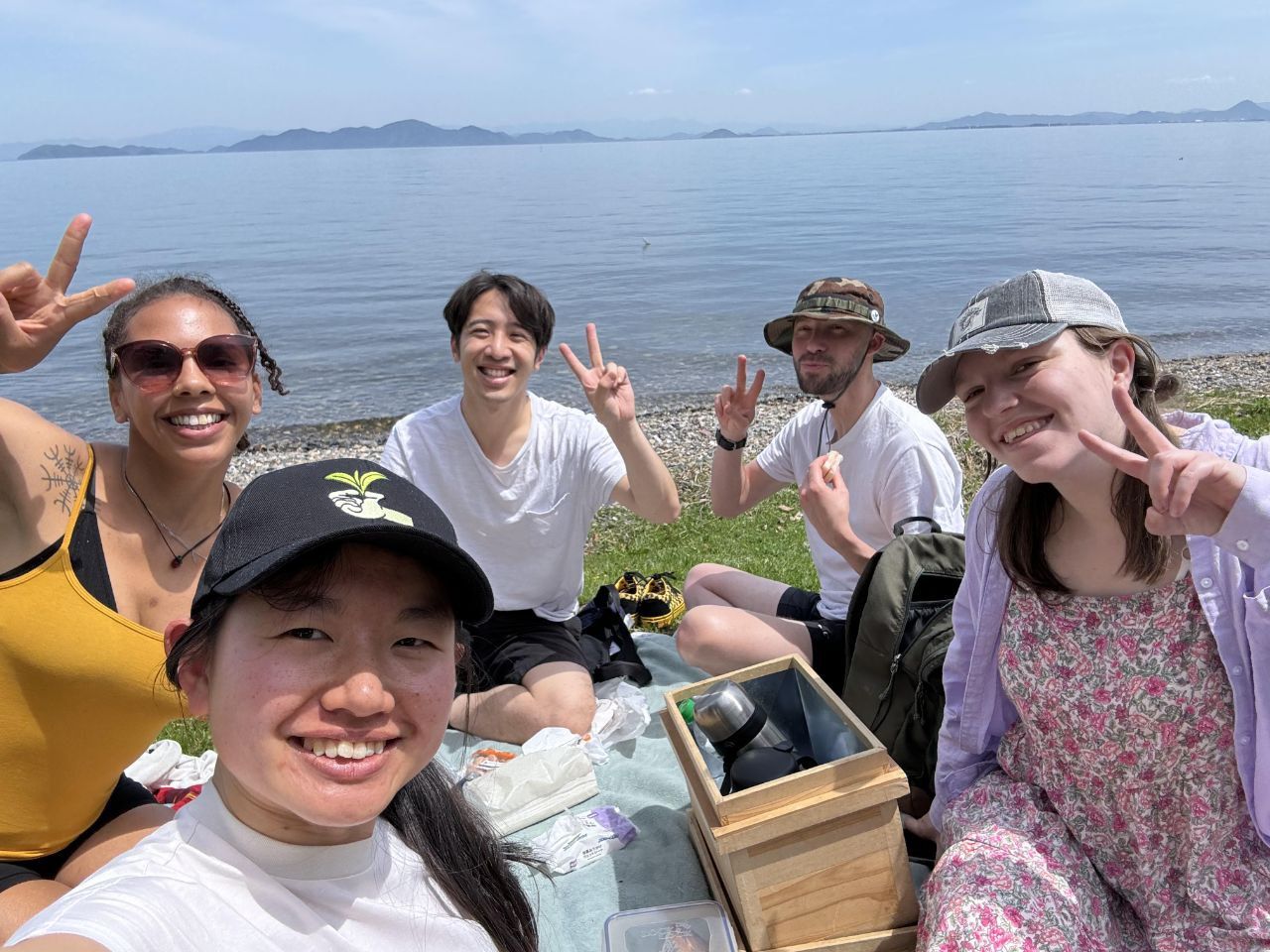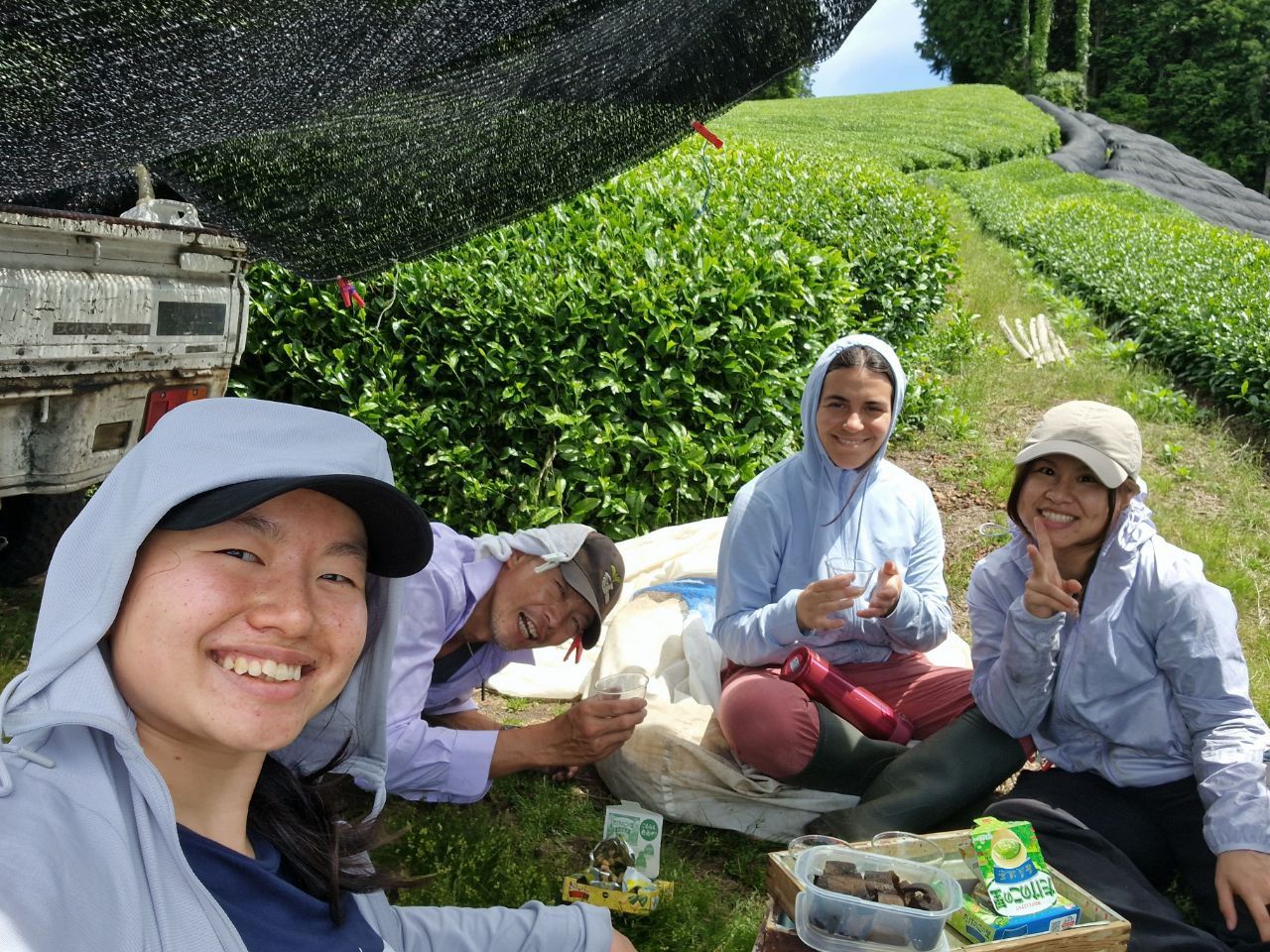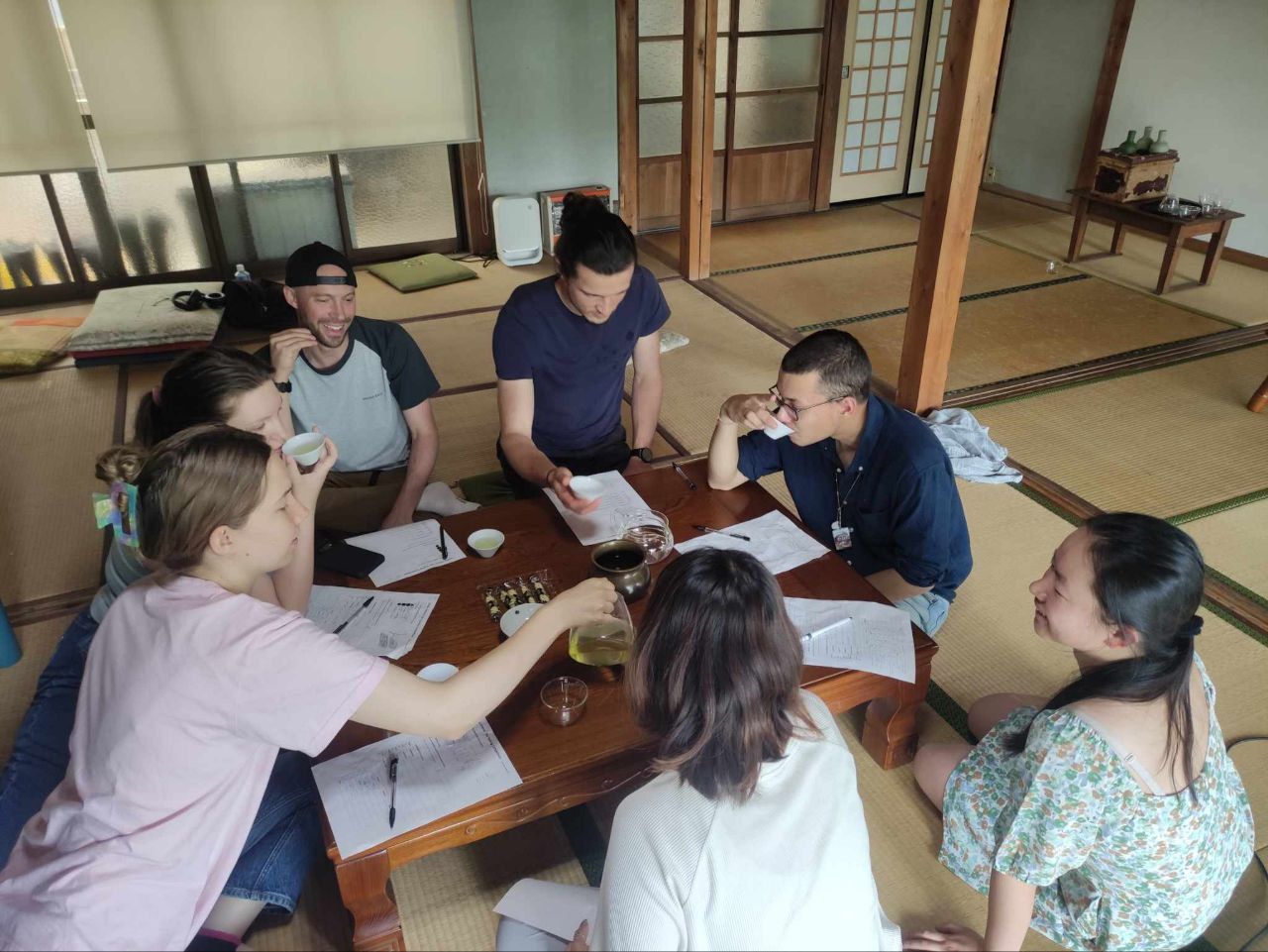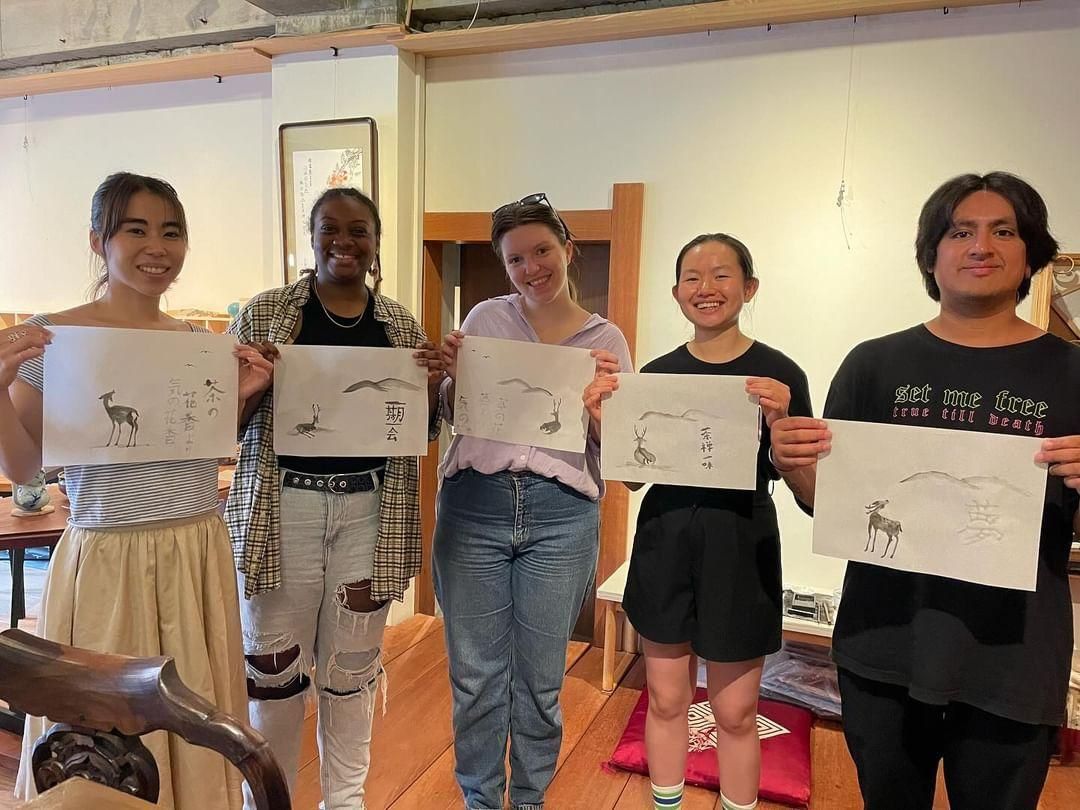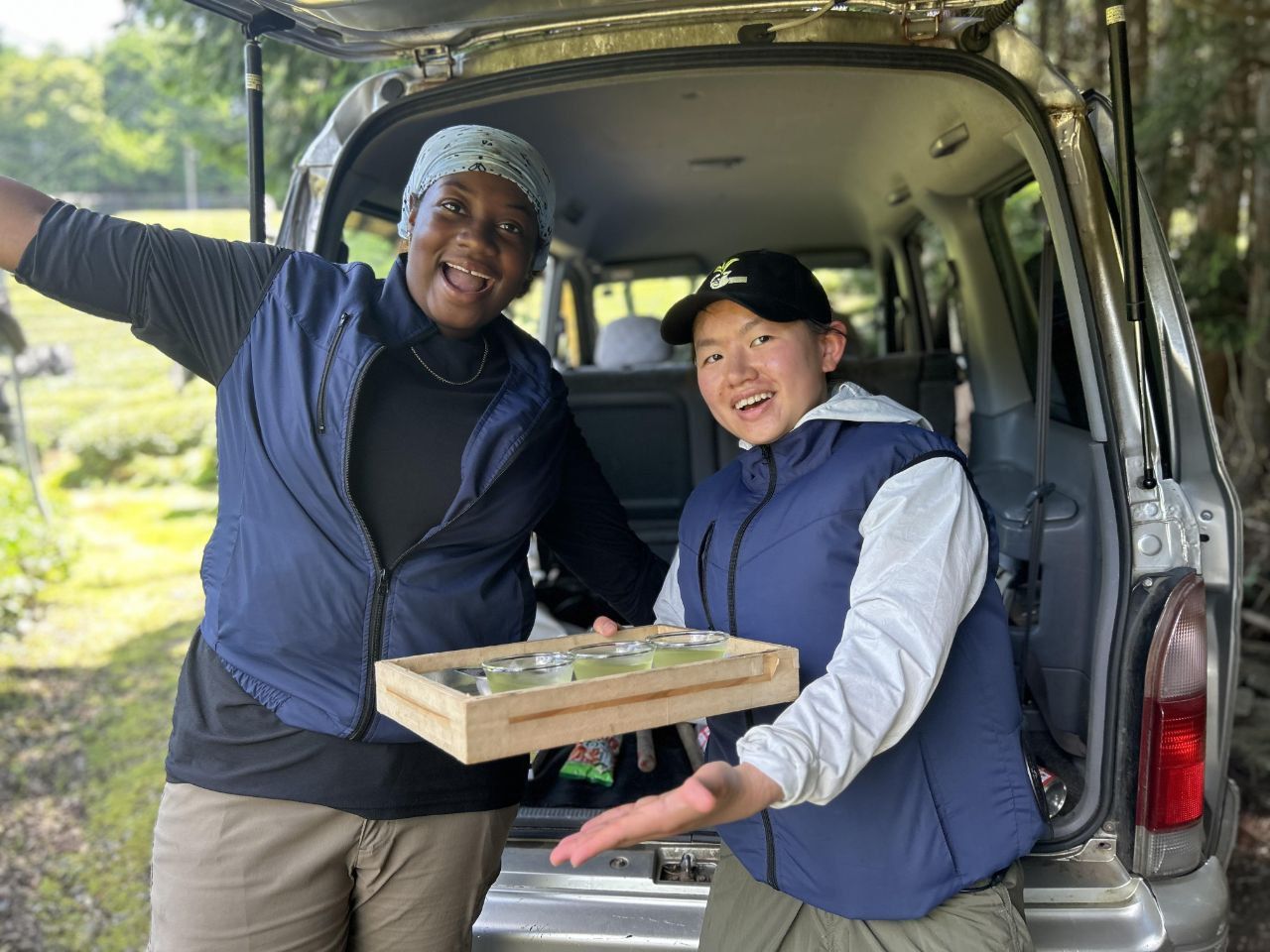Singapore
Intern #173 (also Tea Fairy #2 as designated by my co-intern Jordan Gilstrap)
Hi, my name is Amanda. I interned at Obubu Tea Farms over the spring and early summer period (24 April to 18 July 2024). In my experience, I read the Previous Intern pages to get a sensing on the internship programme at Obubu: what happens in the internship, who is recruited, etc. As such, I have structured my page to share a bit about who I am and my background. After that, I provide a brief reflection on my experience as an intern. If you would like to here more about my experience, nerd out about tea or data visualisation analysis, please fill free to contact me via LinkedIn and/or Instagram.
Who am I and why did I intern at Obubu?
I am from Singapore, a small city–state in Southeast Asia. I grew up there, completing my undergraduate studies majoring in Life Sciences and moved to Vienna, Austria for my PhD studies. I was finishing up my PhD work in the laboratory of Georg Winter at the Center for Molecular Medicine just before interning at Obubu. My PhD work is wholly unrelated to tea; I developed an approach for identifying a class of drugs known as molecular glue degraders from images of drug-treated cells. Basically, I drugged cells, took some (very beautiful) pictures of these cells and analysed these images. It was a lot of fun; it made me feel like one of those criminal investigation profilers, going down the trail of clues to figure out a drug’s mechanism of action. The clues being the shape of cells after drug-treatment. If you’re curious about my work, you can read more about it here.
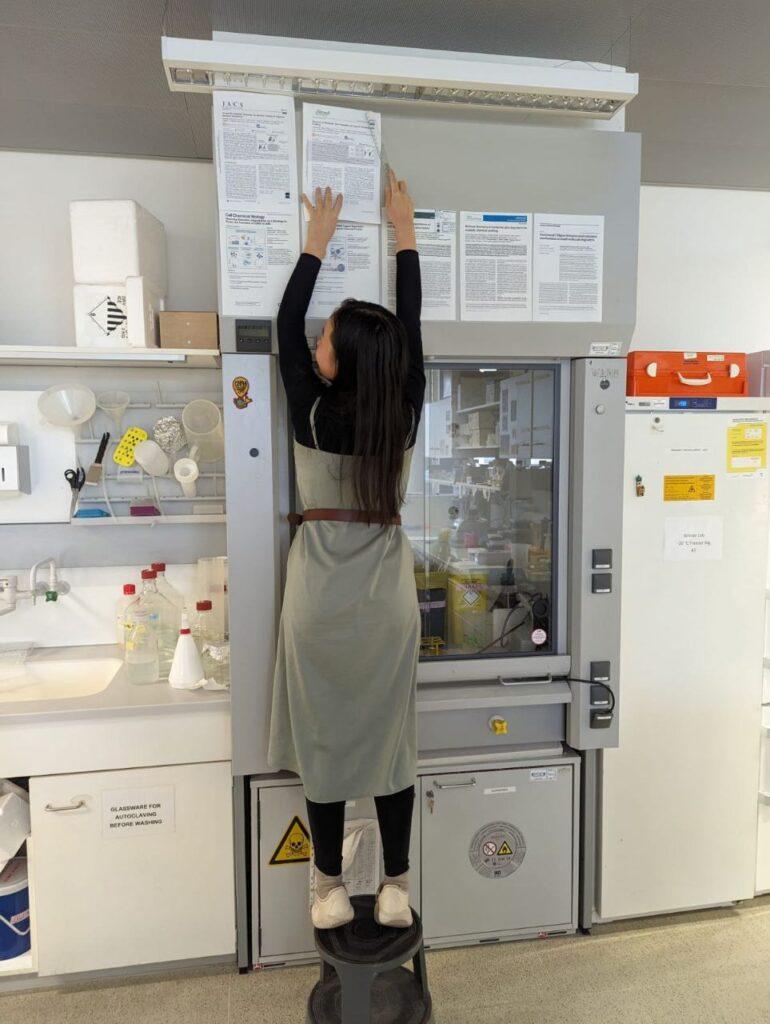
Me sticking up the front page of my first author paper in the Winter lab wall-of-fame. Photo credit: Miquel Muñoz Ordoño.
Perhaps as a rite of passage for all PhD students, I had a bit of an existential crisis in the later half of the second year of my PhD studies. At the time, my initial PhD project had “died off”. There were complications in the experimental design of the project that led to me having to abandon it after over a year of hard work. Around the same time, the cutlery and dishes shelf in my flat had spectacularly collapsed and I was homesick from not being able to visit my home country, Singapore, in the wake of the COVID-19 pandemic. All the right factors for brewing up a storm and wondering what am I doing in my life?
I had my lucky break eventually and one of my projects came to fruition. The point is, during this period of self-doubt and contemplation, I decided on a rather simple and perhaps plain motto: I want to make and spend time on things I enjoy. This motto was what brought me to Obubu.
Tea is something I have found myself gradually enjoying more and more of over time. Growing up in Singapore, I largely grew up with teh, a black tea mixed with sugar and condensed milk commonly served in kopitiam (loosely translated into “coffeeshop”). The tea used is by no means “high quality”; it would typically be black tea dust sourced from Sri Lankan or Malaysian farms. My appreciation for tea grew from rather spaced-out events. There are two moments that come to mind as I write this post. One, when a friend of mine gifted me some shincha (新茶) from Gion Tsujiri named shirakawa (白川). It was a sencha, a green tea, that developed unique flavour profiles over time. I remember making a thermos of it with cold water. I was (and still am) a slow tea-drinker and I noticed that the flavour of the tea would mature towards more fruity notes over time. The second moment was the time a Japanese stationary store franchise Tokyu Hands invited a tea master over to Singapore to advertise matcha they were selling. The tea master had brought tencha (the processed tea leaves that are eventually ground into matcha) and a granite grinding stone. He prepared the matcha powder fresh and whisked up the best matcha I have experienced to date. These two moments really bolstered my interest and fascination with tea.
With my PhD work wrapping up, I found myself with time for simply exploring the things I enjoy and so I decided to find opportunities to learn more about tea. Obubu’s tea internship popped up, I applied, and the rest is history.
What was my experience as an Obubu intern in a nutshell?
My time in Obubu has blasted by so quickly. There’s a saying in Obubu that “As you know, many things happen.” which sums up my experience nicely. It’s quick-paced, not perfect but ever improving. I have gotten exposure to the tea production scene in Japan and realised I’ve only seen the tip of the iceberg. I learnt, for example, that black tea is the second most commonly produced tea in Japan. I also learnt very briefly about the existence of fermented teas like awabancha (阿波番茶) and of the quiet, persistent existence of old Japanese whisked teas broadly classified under furicha (振り茶). I also learnt about the various factors that influence a tea’s flavour: the plant variety harvested from, the field in which the plant variety was grown in, the cultivation method, the processing steps, the brewing steps, etc. To some seeing this range of factors and tea varieties is daunting, but to me it’s fascinating to see how much goes into the final cup of tea I enjoy.
I am also extraordinarily fortunate to have interned at Obubu with some of the kindest and warmest people. The community I have met here come from all walks of life, bringing with them experience from not only different countries but from different career paths. While here, I have crossed paths with a software developer, a horticulturalist, a chef, people who have worked in retail and F&B as well as food engineering and the list goes on. Everyone is brought here with a passion for tea and an interest with sharing with others. I have learnt so much not just from the classes we are given as interns (the Japanese Tea Basics classes). I have learnt from conversations over tea breaks while farming, in the accommodation we stay in with other interns and from pursuing my personal intern project. In my case, I wanted to provide a glimpse into other tea types in Japan and share about how varied the flavour profile of a tea can be based on its terroir. This resulted in a two blog posts: (1) about teas aside from green tea with a focus on Japanese black tea and (2) an experimental recipe incorporating Japanese black tea into a traditional sweet/snack common in Singapore.
I have also gotten to explore the surrounding villages and cities proximal to Wazuka, where Obubu is based. Kobe, Osaka, Sakai, Kyoto, Uji, Nara, Tokoname, and a little bit of the areas around Lake Biwa. There’s still so much to see and I also find myself wanting to know more and more about tea and the related traditional Japanese arts like pottery, wagashi, the art of tea ceremony. I’m sad to depart from Obubu and Japan in what feels too soon.
My internship at Obubu has most certainly been a series of treasured moments for me. With a heavy but inspired heart, I will leave Obubu as my internship comes to an end with new a better sensing for what I would like to explore next. For now all I know is I have my PhD defense to complete and perhaps an adventure up ahead in data science (with a healthy sprinkling of tea).
LinkedIn: http://linkedin.com/in/amandangrh
Instagram: https://www.instagram.com/greenteaconnoisseur?igsh=cXI1cnBtdXJlbjRi

